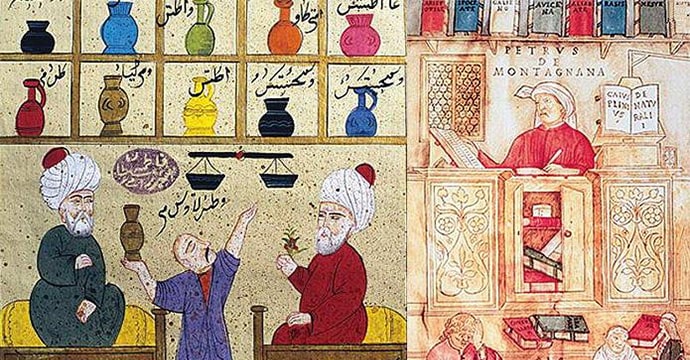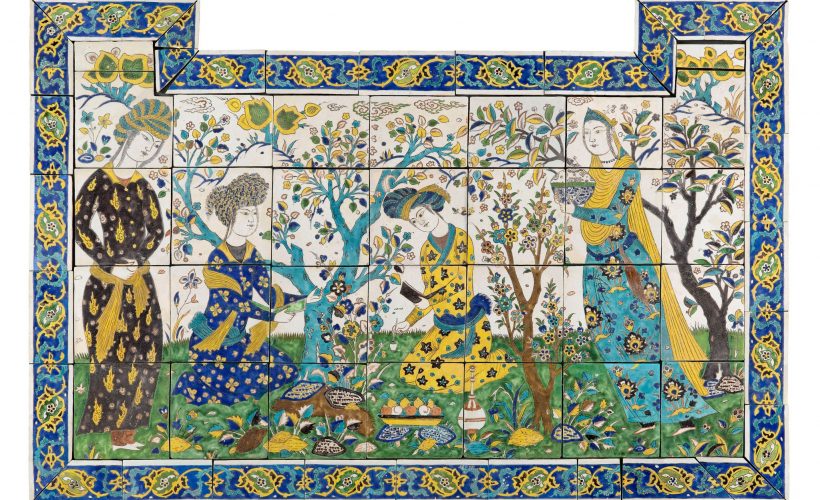History & Heritage
3.18.2020
Life changing medical inventions birthed from the Muslim World

As the entire world closes in on itself, seeking refuge from the threat of a virus we have yet to discover the cure for, it is easy to feel impotent and disregard how far the medicine has truly come. This crisis is an opportunity to commemorate the great medical inventions, tracing back their origins to better comprehend how deeply they shape our everyday lives.
The germination of Islam during the 7th century ignited a Golden Age of scientific and medical discoveries. The modern approach to health and medicine flourished from those ancient muslim societies and their thinkers, with inventions that may seem self evident today, yet truly pushed the boundaries at the time of their creation. Here are just a few.
Hospitals

Medical centers as we know them today, with wards and rehabilitation centers, trace back to 9th century Egypt. The Ahmad ibn Tulun Hospital, founded in 872 in Cairo, takes the prize for the first one ever, providing free mental and physical care for anyone who needed it. A revolutionary idea at the time, such hospitals spread around the Muslim world and beyond.

Surgery
Around the year 1,000, doctor Al Zahrawi published a 1,500 page surgery encyclopedia, with detailed illustrations, used as a medical reference in the East and West for the following 500 years. Zahrawi made great use unexpected objects such as catgut, a rigid cord composed of natural fiber from animal intestines, to stitch wounds. This avoid infections and an additional second surgery to remove the sutures. He also reportedly performed the first caesarean operation and created the first pair of forceps.

Toothbrushes

The last Prophet Muhammad is said to have invented and popularized the toothbrush in the year 600. His resourcefulness transformed a twig from the Meswak tree, which naturally cleaned his teeth and avoided gum infections that were previously terminal. He spread its use by advising all of his people to take on the practice prior to each prayer.
Optics

Many of the most important advances in the study of optics come from the Muslim world, forever ameliorating our relationship with the eyesight. Around the year 1000, Iraqi inventor Ibn al-Haytham proved that humans see objects by light reflecting off of them and entering the eye. This disproved Euclid and Ptolemy’s commonly previously accepted theories that light was emitted from the eye itself.
The crank

Many modern medical machines owe their function to the crank-connecting rod system, which converts rotary motion into linear motion, enables heavy lifting with relative ease. This technology, discovered by Turkish polymath, artisan, engineer and inventor Al-Jazari in the 12th century spread throughout the globe. It uses extend beyond the medical field to enable motion in everything from the bicycle to the internal combustion engine.
A long line of caliphs, sultans, scholars, inventors and medical practitioners vehicles their precious knowledge through the Islamic Golden Age, melding together ancient knowledge and revolutionary ideas to feed the continual quest for medical improvement.
popular

